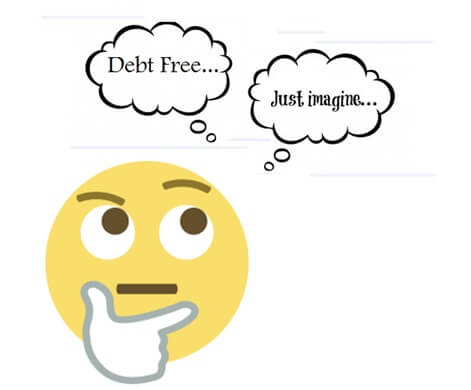





Attorney at Debt Advisors Law Offices
Practice Areas: Chapter 7 Bankruptcy, Chapter 13 Bankruptcy, Stop Foreclosure

The holiday season is meant to bring joy, but for many households in Wisconsin and across the country, it also brings something less cheerful- holiday debt. Extra spending on gifts, travel, and celebrations can feel harmless at the moment. Yet once the season ends, the credit card bills and overdue balances remain, often piling on top of existing financial struggles.
According to a 2024 LendingTree report, the average American added $1,325 in holiday debt, and more than half of borrowers carried those balances for months afterward. For individuals already juggling medical bills, mortgage payments, or student loans, this additional weight can feel overwhelming.
Managing holiday debt is not just about avoiding unnecessary purchases but about understanding the broader impact of financial decisions and finding sustainable ways to live debt free.
Not all debt is created equal. Holiday overspending tends to be short-term, focused on gifts, trips, and celebrations. Long-term debt, such as credit cards, car loans, or mortgages, lingers for years and affects overall financial stability.
A useful way to measure financial health is by looking at the debt-to-income ratio. This calculation compares what you owe each month against your income. A high ratio signals risk, as more of your paycheck goes toward debt instead of savings or living expenses.
Holiday debt may seem minor at first, but when added to long-term obligations, it pushes this ratio even higher. For many families, this is the tipping point where financial stress becomes unmanageable.
Living debt free during the holidays does not mean skipping celebrations. It means approaching the season with a thoughtful plan. Start by setting a clear budget and sticking to it. Write down expected expenses, from gifts to meals, and compare them with available funds.
Non-monetary gifts can be powerful alternatives. Handmade crafts, written notes, or offering your time can create memories without draining your wallet. Having open conversations with family about financial limits is also important. Loved ones often value honesty and shared happiness over expensive presents.
Another strategy is to prepare for January in advance. When tax season arrives, many people receive refunds that can be applied directly to debt reduction. This approach allows holiday spending to be balanced by early-year financial planning.
When financial strain grows, collection calls may become more frequent, even during the holidays. It is important to know that you have rights under the Fair Debt Collection Practices Act (FDCPA).
Under the FDCPA, creditors cannot call you before 8 a.m. or after 9 p.m., use abusive language, or threaten actions they cannot legally take.
Wisconsin also has its own laws regarding debt collection. For example, the statute of limitations for most consumer debts is six years (Wis. Stat. § 893.43). This means collectors cannot file a lawsuit once that period has passed.
If your situation escalates to the point where bankruptcy is a consideration, federal law provides additional protections. Filing initiates what is called an automatic stay, which temporarily halts most collection efforts, wage garnishments, and foreclosures. While this process requires legal guidance, knowing it exists can provide reassurance.
The end of the year is more than just holiday parties and family gatherings. It is also an opportunity to reset financially. Many people push aside their money concerns until after the holidays, but this only delays the stress. Starting a plan before the new year has real benefits. January is when holiday bills arrive, and preparing early can prevent falling behind.
Additionally, tax season provides a unique chance to redirect refunds toward debt repayment. Even small refunds, when applied to high-interest accounts, can reduce long-term costs.
Research shows that financial stress during the holidays is directly linked to increased anxiety, strained family relationships, and higher reliance on credit cards.
Treating the new year as a financial reset allows you to move closer to a debt-free lifestyle without waiting for the problem to worsen.
Living debt free extends far beyond the holidays. It reduces anxiety, strengthens family stability, and allows more control over the future. Debt-free living also improves credit scores, making it easier to secure fair interest rates on future loans.
Another benefit is the chance to focus on retirement and savings. When monthly income is not consumed by overdue payments, it can be directed toward long-term goals. A strong financial foundation creates security, freedom, and peace of mind that no short-term gift could match.
|
Holiday Debt Trigger |
Immediate Effect |
Long-Term Consequence |
| Overspending on gifts | Higher credit card balances | Interest accumulation and late fees |
| Travel expenses | Reduced savings cushion | Risk of emergency reliance on credit |
| Ignoring bills for holiday spending | Temporary relief | Higher delinquency rates |
| Using payday loans | Quick access to cash | Debt cycle due to high interest |
Many households rely on credit cards for holiday purchases, leading to balances that linger into the new year. Rising living costs and interest rates make repayment harder.
Yes, but debt collectors must follow FDCPA rules. They cannot call at unreasonable times, harass you, or make threats they cannot legally enforce.
Simple options include handmade gifts, personalized letters, or shared experiences. These create meaningful connections without adding to financial strain or long-term debt.
Debt often leads to stress, anxiety, and tension in relationships. Addressing financial problems early can reduce emotional strain and improve overall well-being.
The sooner the better. Beginning repayment immediately after the holidays or using tax refunds for repayment can minimize interest charges and improve credit health.
Yes. High balances increase credit utilization and late payments lower scores. Managing repayment quickly helps protect your credit profile and financial future.
Holiday debt can feel overwhelming, but it does not have to define your future. By setting limits, knowing your rights, and planning ahead, you can protect yourself from long-term consequences. Living debt free is truly the gift that keeps giving, offering peace of mind and financial freedom long after the holiday season ends.
If you are facing serious debt challenges in Wisconsin and need guidance, the team at Debt Advisors Law Offices is here to help. Speaking with an experienced Wisconsin bankruptcy lawyer can provide clarity on your options, whether that involves restructuring debt, learning about federal protections, or exploring bankruptcy as a fresh start.
Our attorneys provide compassionate, knowledgeable support and can explain your options under Wisconsin and federal law. Schedule a free consultation today and take the first step toward financial stability.

Learn about bankruptcy protections, types of bankruptcy, how to get started, what to expect, and who to trust. Filing bankruptcy is the ONLY way to completely eliminate debt. If bankruptcy is right for you, it offers powerful protections that cannot be achieved through alternative solutions such as hardship relief, loans, or debt settlement.